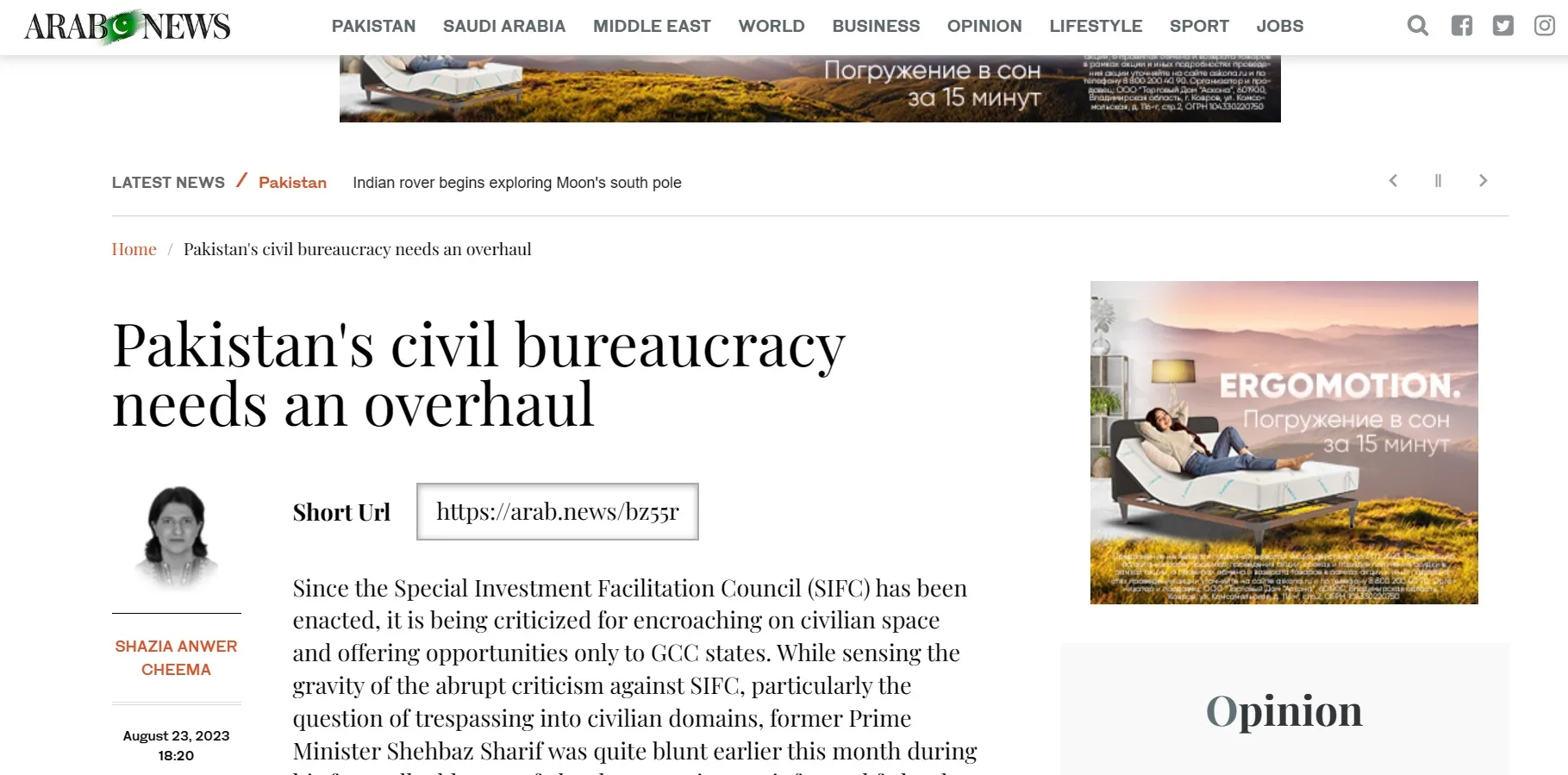Monitoring Desk: “Pakistan is left with no option except to forget its civil bureaucracy and save the country with an innovative administrative structure, at least in the fields of commerce, trade, and industries”.
The above observations are the total sum of the writer of a critical and thought-provoking article published in Arab News on Thursday.

In an article titled “Pakistan’s civil bureaucracy needs an overhaul”, the writer says that since the Special Investment Facilitation Council (SIFC) has been enacted, it has been criticized for encroaching on civilian space and offering opportunities only to GCC states. She maintains that Pakistan predictably depends upon GCC states because they are major trade partners of Pakistan and always support Islamabad whenever it feels isolated or needs financial support. However, the trade deficit with GCC countries is enormous and data available at the Observatory of Economic Complexity (OEC) for the year 2021, indicate that Pakistan’s exports to Saudi Arabia were $472 million while Saudi Arabia’s exports to Pakistan were $3.4 billion, showing a $3 billion trade deficit. UAE exported goods worth $7.13 billion to Pakistan, while the latter’s exports were worth $1.28 billion with an export deficit of around $7 billion. Qatar exported $4.8 billion in goods to Pakistan and Pakistan exported $431 million worth– again, an over $3.5 billion deficit.
With virtually no time to revamp its trade sector, Pakistan is offering economic opportunities to countries from where it is importing heavily and this is the appropriate way to minimize its trade deficit with them.
This is one of the reasons Pakistan focuses on Gulf countries through SIFC arrangements. Waking from an age-old slumber, Pakistan now realizes its vulnerable position and needs to enhance its productivity sector so it has opportunities to offer the region. The productivity of any country depends upon its administrational structure and with no strong local government structure, Pakistan is heavily dependent upon its federal civilian bureaucracy that also manages its provinces. The vacuum created by the shortcomings of the country’s civil administration is now being filled by its military administration in the fields of trade, commerce, and investments because the economy cannot afford further experimentation.
Pakistan needs hard cash and instant investments and both require it to mitigate a trust deficit among investors and an overhauling of the system. It is quite easy to criticize makeshift arrangements in administrative capability but for a country on the verge of bankruptcy and default, the only actionable focal point is to survive, and while doing that, to revive the economy.
The writer believes that civil bureaucracy has proven itself a rusty, faulty machine with multiple operational hazards and it needs a complete overhaul instead of taking stop-gap measures. She believes that former prime minister Shehbaz Sharif had bailed out trade and investment sectors by establishing SIFC but civil bureaucracy if stays intact would result in constant pilferage of earnings through heavy expenditures it is habitual of.
She is of the view that the choice to overhaul the entire system lies with the next elected government. They must either reshape the civil administration for the smooth running of the country or keep inviting non-civilian institutions to fill the gaps because the country has to move on either through civilian or military bureaucracy.
